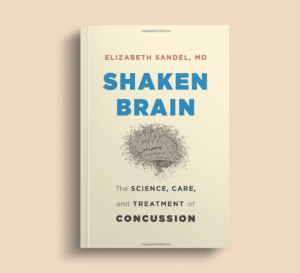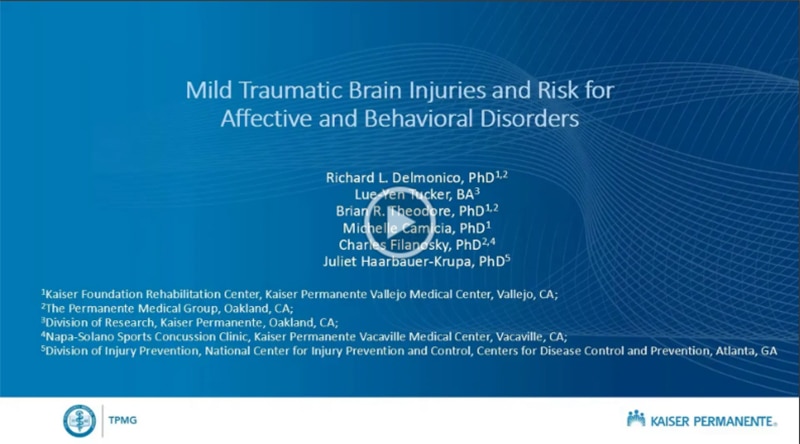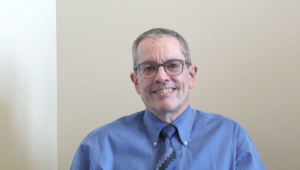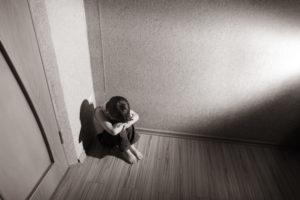Is There a Connection Between Mild TBI and Mental Health Disorders in Adults and Children?
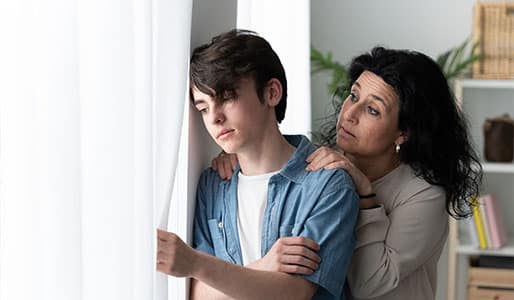
The Latest Concussion Research from Kaiser Permanente
Researchers at Kaiser Permanente have published two major population studies on mild TBI (mTBI) and mental health disorders in the last several years.
In the first study, published in the journal PM&R in 2021, Richard Delmonico and colleagues found that mTBI was associated with a significantly increased risk of having subsequent affective disorders for both adults and children, most prominent during the first 12 months after injury.
Concussion Increases Risk for Affective Disorder, Especially for 10 to 13 Years Olds
In the most recent study, focused on children and adolescents and published in the journal Pediatrics in 2024, Delmonico and colleagues found that risks for affective disorders were significantly higher across the first 3 years post-injury for children and adolescents with a history of mTBI. The age group with the highest risk for post-injury affective and behavioral disorders was 10- to 13-year-olds.
This post includes a PowerPoint presentation and a Q and A with the researchers who emphasize the importance of regular interval screening for affective and behavioral disorders in children and adolescents who sustain a mild TBI for years after the injury.
Q and A with Authors Richard Delmonico and Brian Theodore
About Their Study on Mild Traumatic Brain Injury (mTBI) and Mental Health Disorders in Children
[Delmonico RL, Tucker L-Y, Theodore BR, et al. Mild Traumatic Brain Injuries and Risk for Affective and Behavioral Disorders. Pediatrics. 2024;153(2):e2023062340.]
RICHARD L. DELMONICO, PH.D.
Dr. Richard L. Delmonico is the Director of Neuropsychology at the Kaiser Foundation Rehabilitation Center, Regional Lead for Neuropsychology Services for Kaiser Permanente Northern California, a member of the Kaiser NCAL Sports Concussion Work Group, a Co-Founder of the Youth Sports Concussion Program at Kaiser Permanente Trauma Center, Vacaville, Co-Lead of the Kaiser Permanente NCAL TBI Research Group. and Co-Director of the Brain Injury Program at Kaiser Foundation Rehabilitation Center. He is a member of the American Congress of Rehabilitation Medicine, Brain Injury Special Interest Group – Mild TBI Task Force. He is also a member of the Board of Directors of the Schurig Center for Brain Injury Recovery and Emeritus member of the Board of Directors of the San Francisco Neurological Society. He was previously a member of the Board of Directors of the Brain Injury Association of California, and past president of the Northern California Neuropsychology Forum. Dr. Delmonico was an Associate Clinical Professor in the Department of Physical and Rehabilitation Medicine at the University of California, Davis School of Medicine (1999-2016) and an Adjunct Clinical Professor in the Clinical Psychology Training Program at Alliant University, San Francisco. In addition, Dr. Delmonico was previously the Lead Neuropsychologist for Santa Clara Valley Medical Center, TBI Model Systems Program. Dr. Delmonico has been working in rehabilitation and neuropsychology over the past 43 years. He has been the recipient of a number of professional awards including the San Francisco Neurological Society Community Service Award. His research, publications and professional presentations have focused on psychological, behavioral, sexuality, neuropsychological, substance abuse, and service utilization issues in adults and children with traumatic brain injury.
BRIAN R. THEODORE, PH.D.
Dr. Theodore is trained in Experimental Psychology, focusing on Health Psychology and Quantitative Methods. Over the past 13 years, he has conducted clinical research on statistical models identifying risk factors for barriers to recovery, psychometric validation of outcome measures, integration of technological solutions for healthcare delivery, patient-reported outcomes assessment, and health economic evaluation relevant to patients receiving rehabilitation for conditions as varied as traumatic brain injuries, stroke, and chronic pain. He has routinely served as Principal Investigator and Co-Investigator on grants designed to identify risk factors for mental health disorders following brain injuries, evaluating the effectiveness of interventions for functional improvement across the healthcare continuum, outcomes research using registries, and research on workflow integration of mHealth technology solutions into the clinical setting. He is currently a Research Scientist II at the Kaiser Foundation Rehabilitation Center, Kaiser Permanente Northern California, overseeing the development of a comprehensive research program in rehabilitation of patients with acquired brain injuries. He is also co-lead of the Kaiser Permanente NCAL TBI Research Group. Finally, Dr. Theodore also serves as Senior Research Scientist at PATH2Caregiving LLC, an mHealth startup currently funded by a National Institutes of Health Small Business Innovation Research (SBIR) Phase 1 grant designed to improve the lives of family caregivers of patients being discharged from rehabilitation following acquired brain injuries.
You Might Also Like
Comprehensive Care of Concussions
Dr. Richard Delmonico, a neuropsychologist, outlines the approaches to triage and treatment in a concussion clinic in the Northern California Kaiser Permanente health system. He also discusses the uses of neuropsychological testing to help with diagnosis and management of people with concussions and other brain injuries.
Mood Disorders Such as Depression Can Complicate a Brain Injury
A traumatic brain injury can be associated with depression or another mood disorder, possibly because of the disruption of brain chemicals.
Abuse: A Leading Cause of Brain Injury in Children
Child abuse is a top cause of brain injury-related emergency room visits, hospitalizations, and deaths among children of all ages. Diagnosis can be challenging in cases of pediatric abusive head trauma. Prevention strategies at the individual and community level can be effective and there are many available resources.
Keep up to date
Get updates on the latest in concussion, brain health, and science-related tools from Dr. Elizabeth Sandel, M.D.
By clicking SIGN UP, you agree to receive emails from Dr. Sandel and agree to our terms of use and privacy policy.
Get the book!
